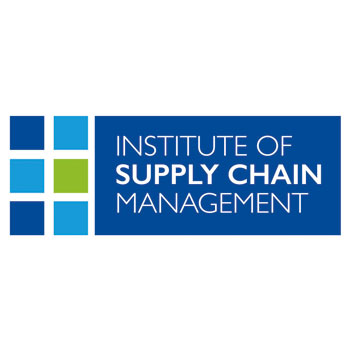How To Optimise The MedTech Supply Chain
Medical technology (MedTech) is an essential component of high-quality patient care. Doctors may fail to maintain high standards without the devices to diagnose or treat illnesses.
Along with the quality of care, there are other benefits of MedTech. Autonomy for doctors, patient safety, and satisfaction from both are priorities. Moreover, a study by management consulting firm McKinsey & Company confirms that optimising the supply chain could improve outcomes and operations.
So, how would MedTech companies optimise this crucial process? These companies can achieve their patient and business goals with the following tips:
Streamline The Operations
Streamlining operations is an effective way to simplify a MedTech supply chain. Furthermore, eliminating the inefficiencies could lead to the following:
- Reduced lead times
- Minimal errors during the process
- Lower operational costs
Medical suppliers like KNF find value in these principles, especially when clients and their patients report improvements. Additionally, patients’ lives could depend on the accuracy and speed of timely deliveries.
Leverage Technology
Many companies struggle to streamline their operations without technology. It leads them to leverage supply chain management software to address their issues. Furthermore, the growing MedTech industry demands have improved production and efficiency from businesses.
Implementing and leveraging technological advancements could thus hold the following benefits:
- Improve visibility, accuracy, and access to data in the supply chain
- Track services provided, invoicing, and payments
- Promote inclusivity and equity and builds trust among role players
- Automate early warnings along with supply and demand figures
- Assist with the planning and coordination of responses and resources
MedTech supply chains can also use electronic data interchange (EDI) or cloud-based computer systems. These software solutions may increase productivity, turnaround time and efficacy.
Collaborate With Suppliers
Although technology can handle most supply chain functions, other parts need human interaction, especially for supplier relationships. Trust and reliability also motivate companies to continue their business relationship.
Collaborating with suppliers could improve the supply chain and the industry as follows:
- Source and match the best suppliers and services with medical products
- Involve suppliers from the project’s start to prevent design and manufacturing delays
- Maintain open lines of communication to joint initiatives to drive efficiency
- Share insights into projects to allow the suppliers to consult at their best
MedTech manufacturers may need specialised services from suppliers. Hence, completing a project without collaboration could delay products’ reaching their destination. It could impact patient care and recovery or leave staff under immense pressure.
Track Regulatory Compliance
Adding to operational stress, companies need to remain within industry standards. Regulatory boards could impose strict rules and regulations on manufacturers. Whether global or local, MedTech is a heavily regulated industry.
For this reason, companies should include the following aspects in their supply chain:
- Personal and company data collection and usage
- Evaluate interactions with the medical community
- Keep up with cybersecurity technology
- Align with value-based care for patients
- Follow the statutes of the government
- Operate with a set code of ethics
Non-compliance could see the company shut down or receive hefty fines. It thus means that companies could lose profits and credibility as MedTech suppliers.
Manage Inventory Levels
Company regulations for supply chains could include the effective management of inventory. Doing so prevents fatal errors in the processing and distribution of MedTech. Effective management could thus have the following characteristics:
- Tracking stock levels of the warehouse
- Checking expiration dates of the stock
- Effective forecasting for supply and demand
- Stock replenishment strategies to maintain optimal stock levels
Too little stock won’t meet the needs of patients — too much and a facility might pay for higher storage fees. So, inventory levels are crucial for smooth supply chain operations.
Implement Risk Management
Managing inventory could be a risk unless the company has enough contingencies. All other parts of the business also need risk mitigation to ensure continuity. What’s more, customers could find alternative suppliers where they can spend their money.
Ideally, risk management plans prevent supply chain disruptions by implementing the steps below:
- Assess all potential supply chain risks
- Develop mitigation strategies
- Implement the contingency plan
- Analyse the efficacy of the method
- Adjust the process if needed
Minimising risks could save a MedTech company in the long run. For example, losses in customers and profits could ultimately cause the company to close down. It, thus, makes risk management imperative.
Foster An Improvement Culture
Although it’s helpful to have contingencies, companies could avoid problems altogether. Fostering a culture of improvement may identify problems before they cause havoc. Staff and stakeholders can identify areas for improvement, so ongoing optimisation becomes a best practice.
Furthermore, anticipating change and expecting everyone involved to be a part thereof could cultivate a proactive company culture. In turn, it optimises the supply chain when constant improvements trump disruptions.
In Conclusion
MedTech is undoubtedly a vital part of the medical field, even more so in their supply chains. Streamlining operations, mitigating risks and involving all stakeholders could be most valuable in optimising the process. After all, patient lives and the company’s livelihood depend on a solid chain with a steady supply.

Gain Valuable Insight With an Expert Course Advisor
We understand choosing the right course isn’t easy – there’s a lot of research and planning involved before making the decision; after all, your choice will impact your career.
Our expert course advisors are dedicated to helping you decide. All you need to do is briefly account your experience, current education and learning objectives. Our advisors can then offer valuable insight into which qualification route and level are best for you, giving you the confidence to take your career to the next level.
The best decision you can make is a well-informed one, so speak with a member of the team today.
